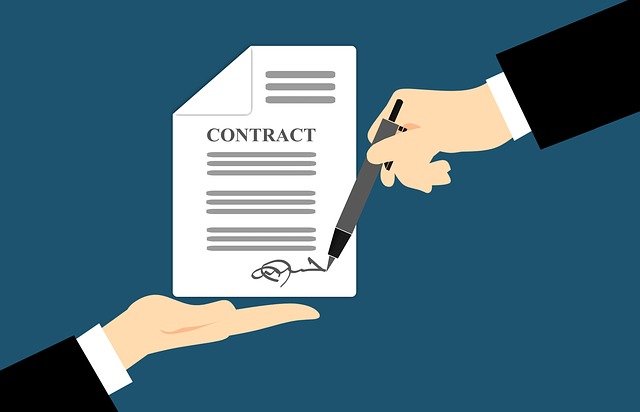We are always using our brain for the most part of our life, but we don’t do much to keep it in good shape. Your brains need a lot of training and stimulation. There are a lot of things you can do to improve your working memory. But many people are not focused on taking the time to train their brain.
There are a lot of great apps, games, and exercises that you can use to improve your brain performance and math skills at the same time. This type of memory training can lead to improvement in mathematical capacities and even help you with your college homework. For accellerated math students, K-12, most turn to math summer camps to stay sharp and avoid the summer slide.
Read also: Upcoming Educational Trends In 2017
Here are seven steps to help you improve your brain’s function with math
Visualise the problem and practice a lot
To improve your memory, practice visualisation skills to support visual-spatial working memory. This is very important if want to be good in math. When you visualise what you hear, you boost weak verbal working memory. Create a picture in mind to represent the information you just heard or read. Then draw that picture and explain it. The idea is to describe the picture you have in mind. It will give you the chance to create a mental image of who, where, what, when, size, colour, shape, texture, and mood.
Also, repeated practice can help reduce the strain that may be involved in working memory capacity. Strategies such as memorising multiplication tables help to improve your working memory and math skills. Over-learning or memorising a certain task allows individuals to work something out, which enables them to free up some memory space. During this process, make sure you take breaks to regain focus and not drift away from the main task. Repeated practice help an individual to retain information, and even stretch their memory capacities.
Use playing cards
There are so many games I can play that involves math to improve my brain performance and help do my homework. Games such as Crazy Eights, Concentration, Uno, and Memory require memory and use of sets, numbers and mathematical concepts. When you play these game, you get to learn to hold information when making any decision. Simple card games such as Go Fish require the players to recall what cards are likely to be in the opponent’s hands. Other complex cards such as Pinochle require good memory skills that involve counting and estimation to win. Playing complex games will help train your brain to be better.
Paper writing service
Mathematics is one of the most challenging subjects in school. If you don’t know the formula to a certain problem, there is no answer, and this can feel like a punishment. This is more common in Geometry, a branch of mathematics which is a quite complex and require special skills and knowledge to solve problems.
Read also: 5 Tips For Getting A Cheap Essay Writing Service Online
If you feel frustrated in solving the math problems at hand, you can seek Geometry homework help from a paper writing service like https://homeworkhelpdesk.org/math/geometry/. They can help you understand curves, visualize dimensions, calculate angles, determine congruence, and much more.
Multiply numbers without a calculator
If you’re doing simple math like addition and subtraction at the grocery, avoid using a calculator and do some quick mental math. Start by multiplying two numbers at a time, then work your way up to three, and so on. Remember, math is a skill that can be easily forgotten if not done frequently. This will improve your organizational memory, visualization, and problem-solving skills with time. If you get stuck, you can seek math homework help from writing services.
Complete puzzles and play video games
Mental challenging puzzles such as Sudoku, Crossword puzzles, and other word puzzles are perfect ways to train your brain. Your brain needs to be subjected to challenges to make progress. When the brain realizes that it’s good at something, it stops putting in the effort. So completing puzzles will help the brain remain active and you will not talk of homework help math again.
Read also: Rock The Ball – A Challenging Brain Teaser
Puzzles are available online. It’s not like a couple of years ago where you could only find Crossword puzzles in magazines or newspapers. Even more, you get to choose from hundreds and thousands of puzzles on the internet. These games will increase your ability to recognize patterns and process thoughts and ideas quickly.
Also, some people say that video games can make your brain mush. But not all video games are like that. Many games are designed to engage your mind, improve your memory, boost mental speed, develop logic, and boost creativity. Look for entertaining brain games such as chess, word games, memory games, and many others and keep the mind engaged.
Write often instead of typing
Many people love keyboards because they’re much more efficient to get the words on the page than using hand to write something. But if you want to acquire new knowledge, you may want to ditch the laptop and practice typing what you want by hand. This is important because, the reticular activating system (RAS), which is the brain’s filtering system processes what you’re focusing on at the moment. When you write, the RAS becomes active and you alert the brain that it’s time to pay attention to the task at hand. It is an effective way to train your brain especially when solving math problems.
Intelligence is not achieved overnight. But, it can be achieved by training your brain and helping it function at a more efficient level. The secret is to change your daily activities and take new challenges to help stimulate your brain. Solving math problems is a challenge that can help you do that






















